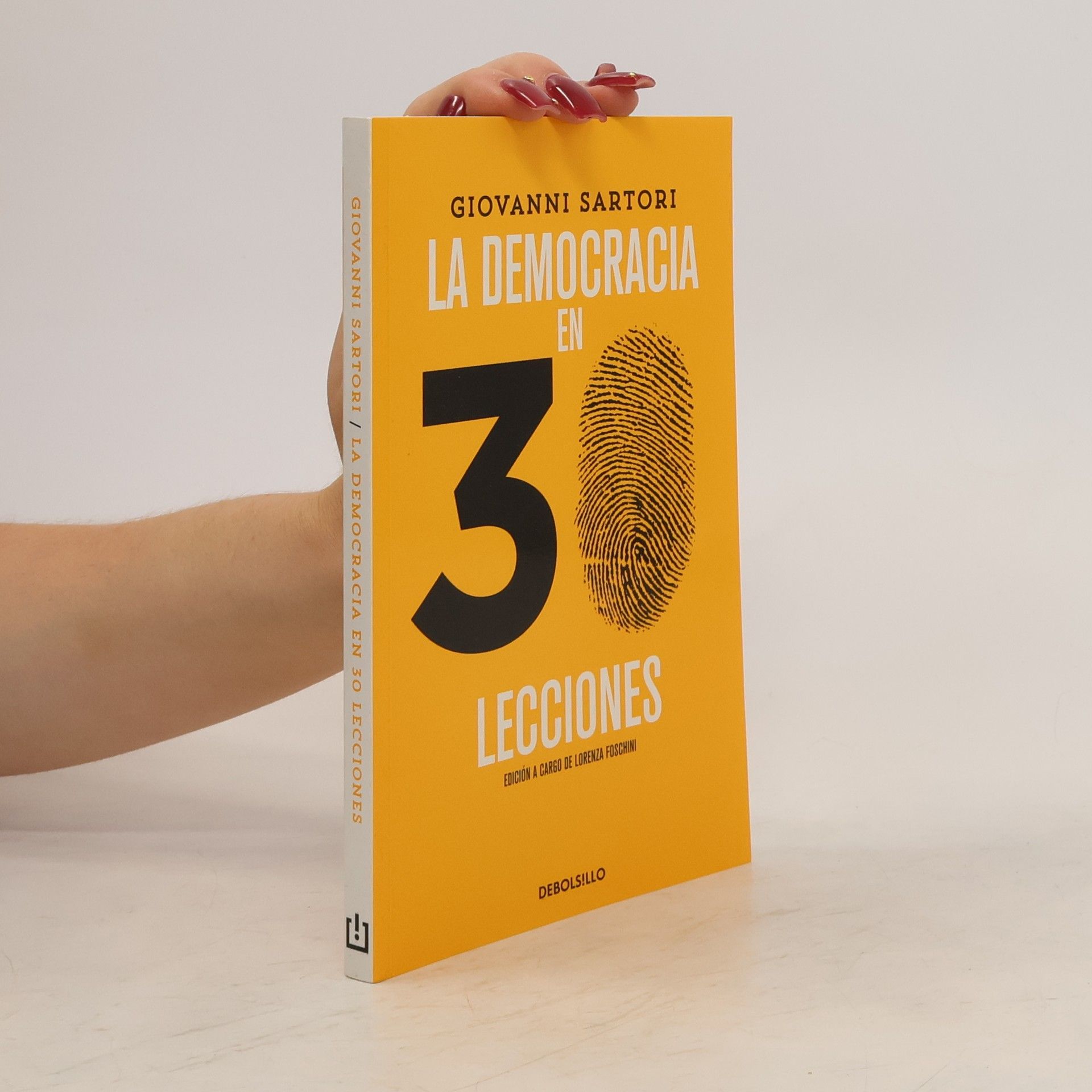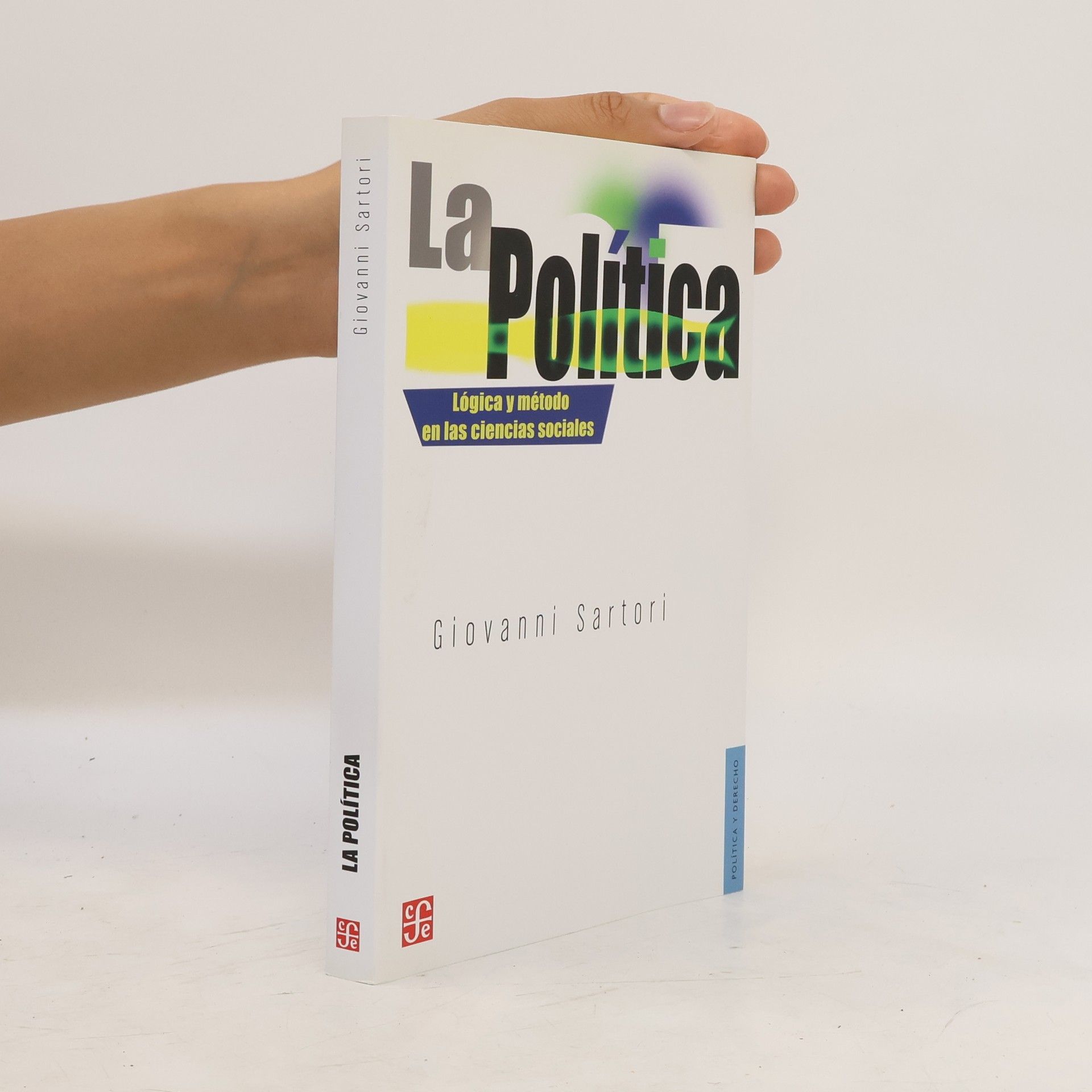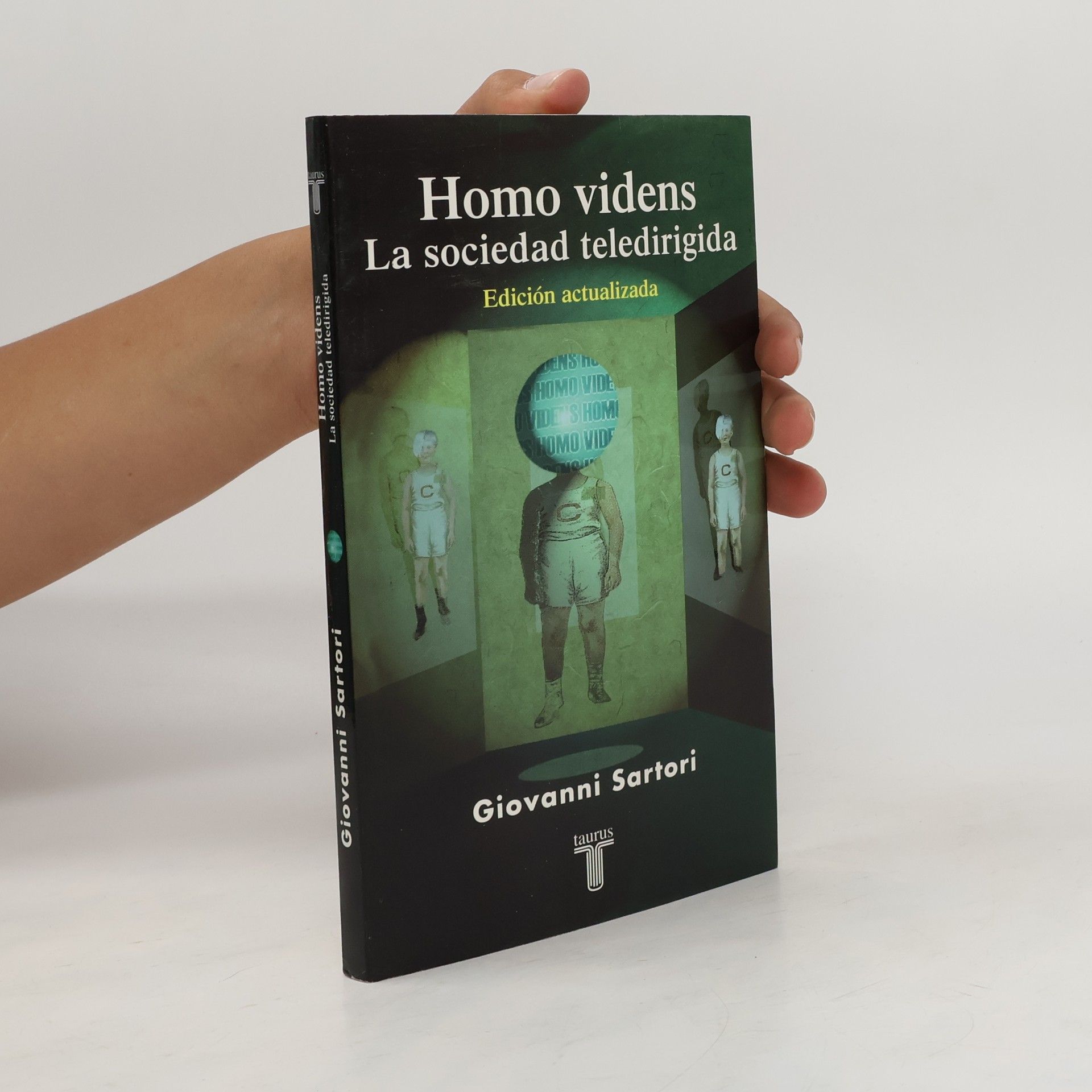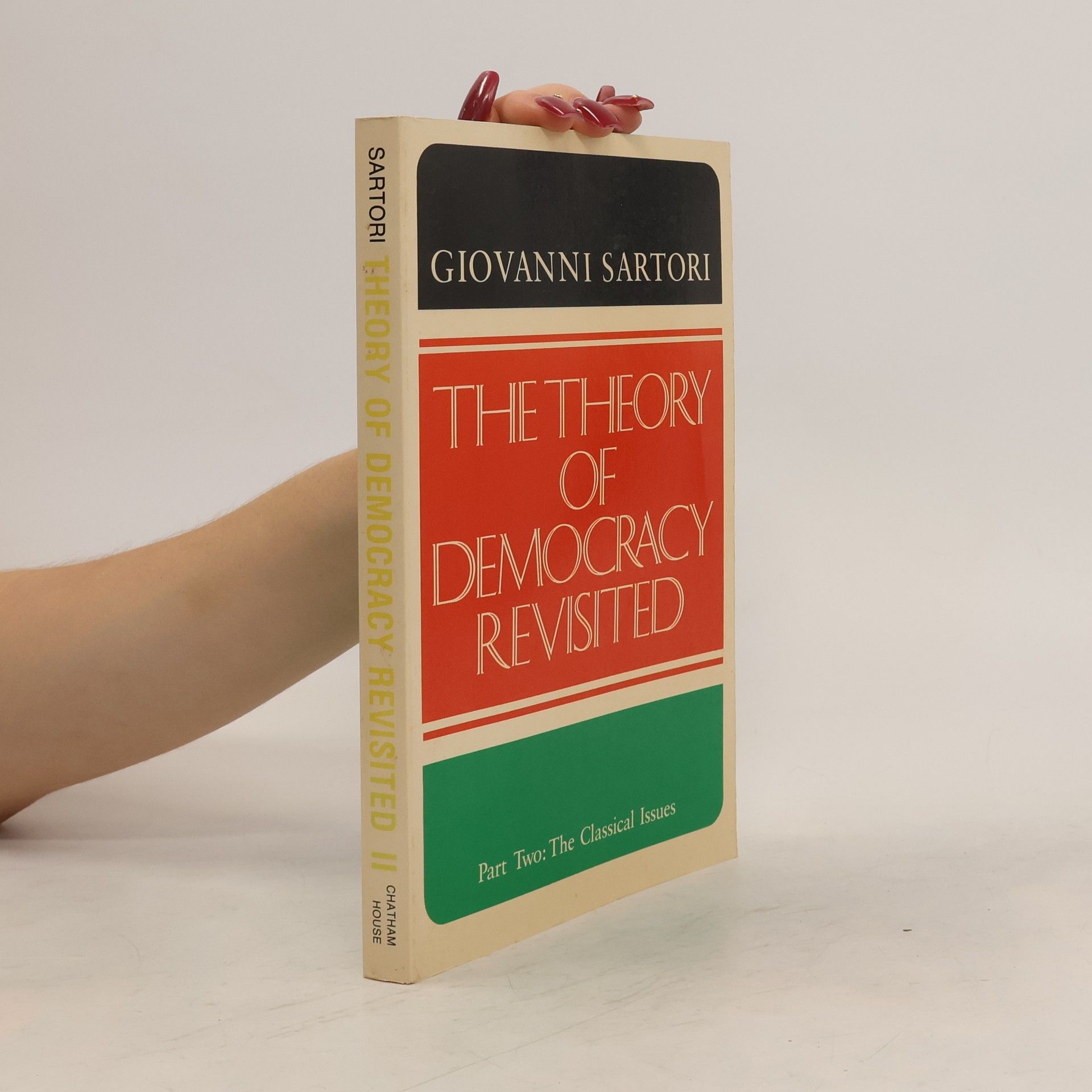Informatica Giuridica - 3: Temi di diritto dell'informatica
Quarta edizione
- 224 pages
- 8 hours of reading
Giovanni Sartori was a distinguished Italian political scientist whose work focused on the study of democracy and comparative politics. His analyses were marked by a deep concern for conceptual clarity and methodological rigor. Sartori's essays, particularly those addressing concept formation in comparative politics, are regarded as seminal works in the field. Through his academic career and his contributions as an op-ed writer, he shaped discussions on the nature of political systems and democracy.







Quarta edizione
Corso di informatica giuridica - Terza edizione
. 8vo pp. VI - 198 Brossura (wrappers) Perfetto (Mint)
The book presents a thorough classification of party systems, establishing itself as a key reference in political science. Giovanni Sartori critiques existing spatial models of party competition while providing a comprehensive review of political parties' concepts and rationale. It combines theoretical insights with rigorous analysis, supported by extensive cross-national empirical data. Recognized as a classic in postwar political science, it stands out as a seminal work in understanding party dynamics and systems.
Giovanni Sartori reúne en este volumen una serie de conceptos y términos clave en teoría política, con el fin de ofrecer un marco de los grandes temas de la política. Todos los conceptos que recoge —constitución, democracia, dictadura, igualdad, ideología, liberalismo, mercado, opinión pública, parlamento, política, representación, sistemas electorales, sociedad libre, técnicas de decisión y videopoder— son abordados analíticamente y en su desarrollo histórico. Asimismo, realiza una exploración de los fundamentos constitutivos de cada sistema político y reflexiona sobre el destino de la sociedad liberal-democrática en el mundo contemporáneo.
Migrační vlny směřující do Evropy, krize amerického tavicího kotlíku i doktrína multikulturalismu obnovily diskuse o politické teorii, jejímž ústředním motivem je dobrá společnost. Za dobrou společnost považuje Sartori společnost otevřenou, tedy pluralitní a založenou na toleranci. Z jeho analýzy historického vývoje společnosti vyplývá, že dnešní multikulturalismus nepředstavuje rozšíření či pokračování pluralismu, nýbrž jeho popření. Multikulturalismus totiž neusiluje o diferencovanou integraci, ale o multietnickou dezintegraci. Autor si v knize klade otázku, do jaké míry se může pluralitní společnost otevřít kulturním nepřátelům, kteří ji z podstaty odmítají, aniž by se sama dezintegrovala. V doplněném vydání knihy je prohloubeno právě toto téma, o jehož aktuálnosti také tragicky svědčí terorismus islámského původu.
Klasická práce slavného italského politologa, která se konečně dočkává vůbec prvního českého vydání. Autor v této knize podává vynikající přehled různých podob stranických systémů a nabízí jak jejich klasifikaci, tak především objevnou typologii. Velmi zajímavé a přínosné jsou i Sartoriho rozbory povahy politických stran a jejich vnitřního uspořádání. Uvedené dílo se stalo mezníkem ve vývoji politologického výzkumu politických stran a stranických systémů, kromě toho také bylo a dosud je východiskem pro další teoretické úvahy na tomto poli.
Giovanni Sartori è uno dei massimi studiosi della politica del nostro tempo. È Albert Schweitzer Professor in the Humanities alla Columbia University di New York e professore emerito di Scienza politica all'Università di Firenze. È membro della American Academy of Arts and Sciences e della Accademia dei Lincei. Editorialista del "Corriere della Sera", è tra i più autorevoli e seguiti commentatori dell'attualità politica italiana e internazionale. I suoi libri sono tradotti in più di trenta lingue. Il volume raccoglie gli articoli scritti da Giovanni Sartori nell'arco di una decina di anni.